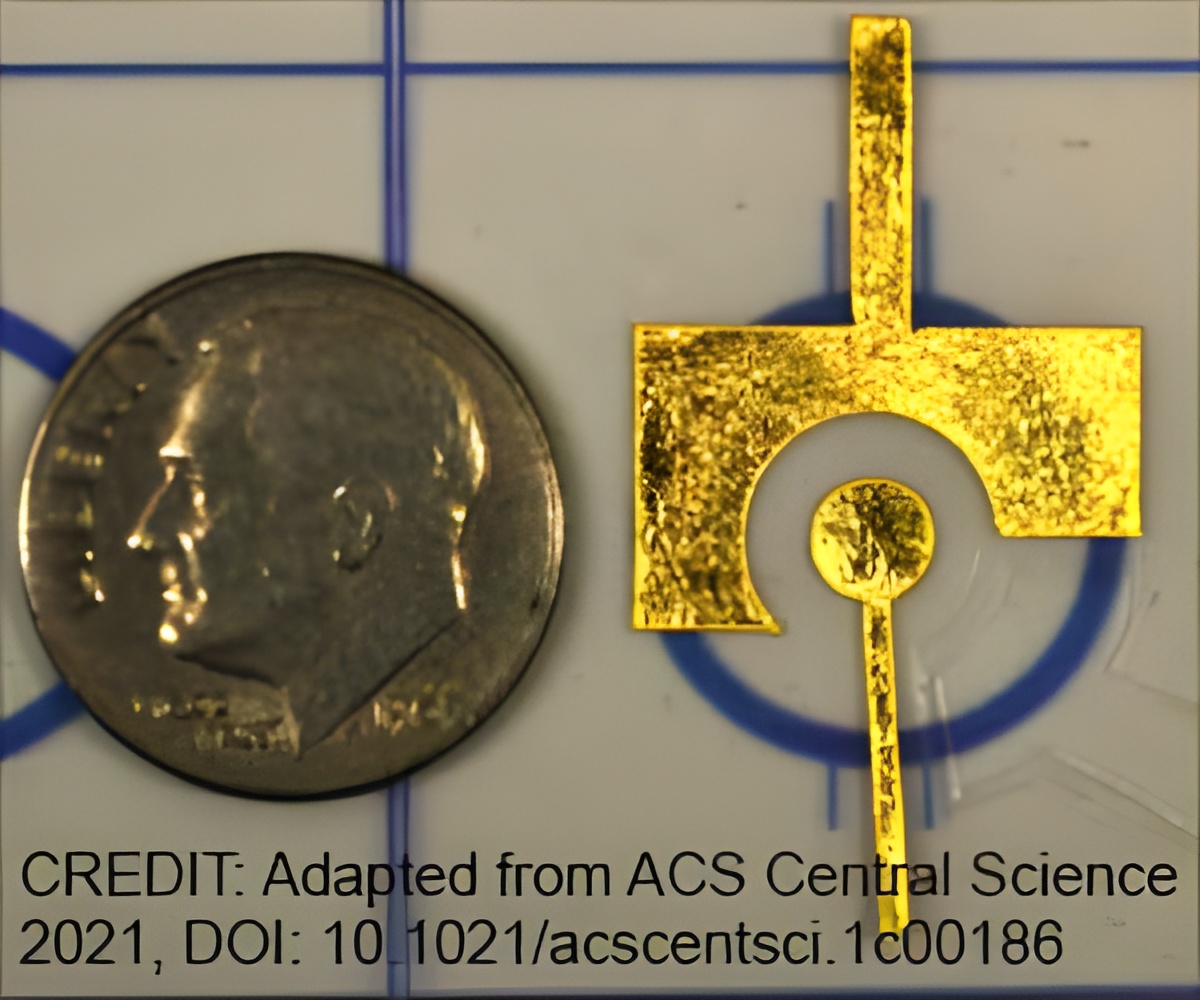Gold leaf electrodes in combination with a CRISPR-based assay could help diagnose human papillomavirus (HPV) from human samples in low-resource settings.

‘Gold leaf (gold metal hammered into thin sheets) electrodes in combination with a CRISPR-based assay could help diagnose human papillomavirus (HPV) DNA from human samples in low-resource settings. The high accuracy of this technology in detecting the HPV may lay a path to detect any other viral infections, including SARS-CoV-2.’





Since low-resource settings regions lack the diagnostic facilities, the study team developed a simple, affordable point-of-care test – a three-electrode system using a sheet of 24K gold leaf. This technology provides a readout in the presence of HPV DNA. The CRISPR Cas12a enzyme was engineered to recognize an HPV sequence on the surface of the electrode. In the presence of HPV DNA, Cas12a became activated, causing the enzyme to cut the dye-tagged DNA sequence, which changed the electrochemical signal.
The assay costs only about $2.30 total per test (compared with $30-75 for existing tests) with high accuracy in detecting the HPV from cervical swabs of patients. The team thereby anticipates that the technology may lay a path to detect any other viral infections, including SARS-CoV-2.
Source-Medindia











